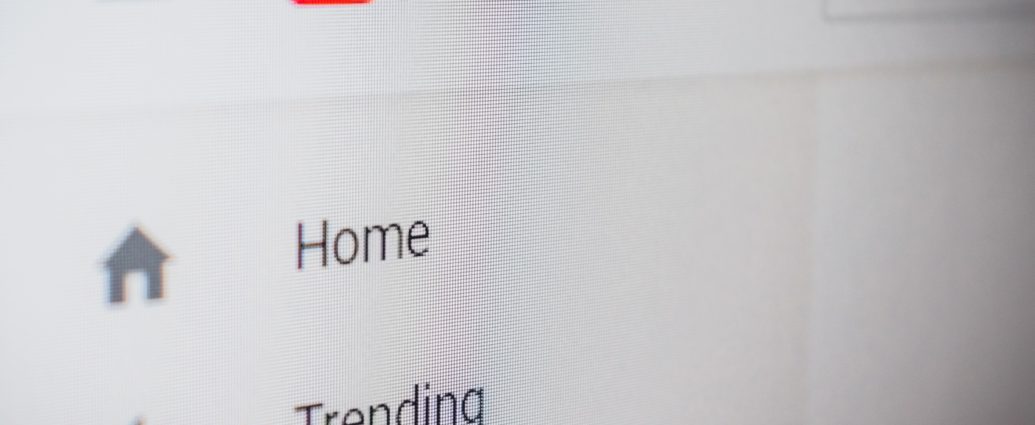Rachael Hughes
With over 2 billion monthly viewers (as of May 2019), YouTube has made a ground-breaking impact on the internet and, upon reflection, on society as a whole.
For 18 years, YouTube has offered people a platform to share and stream videos that range from a 17 second clip of a sneezing panda, to 2 hour long self-made documentaries. Whether you’re a gamer, a make-up artist or struggling to change a tyre, there is something for everyone. What was once a platform for sharing short, home videos, YouTube has provided millions of individuals with a very sustainable income, which has arguably been one of the reasons for the escalation in creators and influencers. However, as our consumerist society is now infiltrated with social media and an increasing number of streaming platforms such as Netflix and Disney+, it is questionable whether the YouTube era can continue for much longer.
“For me, 2012 – 2015 was the absolute epitome of YouTube.”
But what exactly is, or was, the YouTube era? In 2021, YouTube saw approximately 53 million users from the UK engaging with the platform. Evidently, to say that YouTube has died a death would be a stretch. It is simply changing. The way in which we consume media in general is changing, as we are constantly spoilt for choice in terms of content. It is a consumer’s heaven.
When YouTube was first established, there was an influx of short, camcorder filmed videos showcasing intimate, familial moments. Take the iconic ‘Charlie Bit My Finger’ for example. It was a way in which individuals could share such moments with family and friends in one click. Thanks to the technological break-throughs of major companies such as Apple, Canon and Samsung, content creation became an easy, accessible hobby. Come 2007, people were taking advantage of YouTube as a platform to attract an audience who shared the same niche.
“Although all good things must come to an end, YouTube evidently created digital bonds that persevere.”
For me, 2012 – 2015 was the absolute epitome of YouTube. I’m talking the iconic merging of the ‘Brit gang’ – Tanya Burr, PointlessBlog, ThatcherJoe, and the ‘Chummies’ Zoella & SprinkleofGlitter – with the US YouTubers – Joey Graceffa, Tyler Oakley, Miranda Sings and so on. I could only dream of flying to California to be at Vidcon, but I settled with my Collection Lasting Perfection concealer and Rimmel 107 Lipstick (if you know, you know) in the comfort of my own bedroom. It’s safe to say that Drugstore Everyday Makeup tutorials and Accent Challenges had me in a chokehold. I honestly believe that Zoella carried a whole generation of people like myself, as we navigated our way through our early teens. She was a pioneering force in an industry that was yet to take off, simply sitting in front of a camera aged 20 talking through her favourite products of the month to hundreds, soon to be millions, of people behind a screen. Hearts shattered when she ceased uploading regular content in 2019, but alas those broken hearts were mended when herself and Alfie announced their pregnancy in 2021. Although all good things must come to an end, YouTube evidently created digital bonds that persevere.
“The YouTube ‘era’ is subject to change”
I’m going to assume that my definition of the YouTube era isn’t the same for everyone, unless everyone was packing their school bag with Bethany Mota after perfecting a fishtail braid. The gamers had Pewdiepie and Markiplier around the same time, with Jake and Logan Paul making their mark soon after. Like I said, YouTube’s place in society is simply changing as consumers are faced with choices. With attention spans dwindling, TikTok has become a favoured platform for consuming content. TikTok blew up during lockdown, as a form of entertainment whilst offering a chance for people to feel connected through trends such as the perfect iced coffee and the ‘Renegade.’ Names such as Addison Rae, Charlie D’Amelio and Francis Bourgeois have gained popularity, as they offer their own quirks and niches which, as with YouTube, attract wide audiences. In some cases, the relationship between influencers, YouTube and TikTok is harmonious in the sense TikTok is great for sharing shorter, more convenient videos, and using YouTube to share vlogs. They serve different purposes, depending on consumers’ needs, which is why I am not 100% on board with the general statement that the YouTube era is over. I may no longer be watching Zoella make-up Tyler Oakley, but I am fully invested in Sophia and Cinzia’s London Days and Girls’ Nights In, and Olivia Neill’s antics.
It’s such a broad question, so coming to a universal conclusion is practically impossible. For me, the YouTube ‘era’ is subject to change, reflecting our needs, our life stages and our interests. In a world where we have so much choice, YouTube is bound to serve a more specific purpose than it did in the past.
Featured image courtesy of Christian Wiediger on Unsplash. Image license can be found here. No changes were made to this image.

